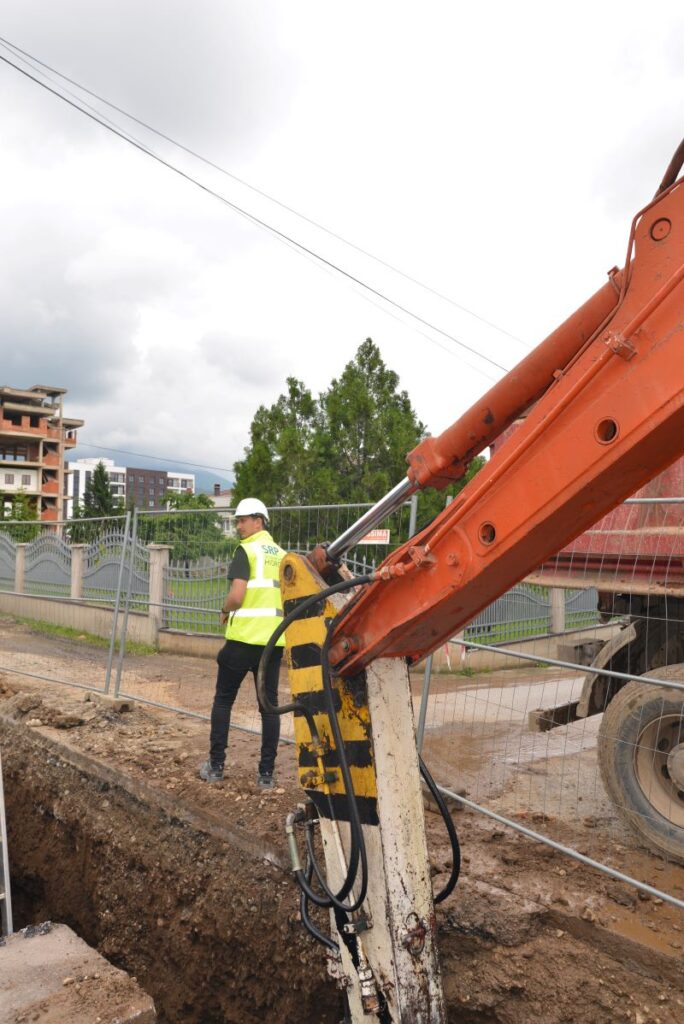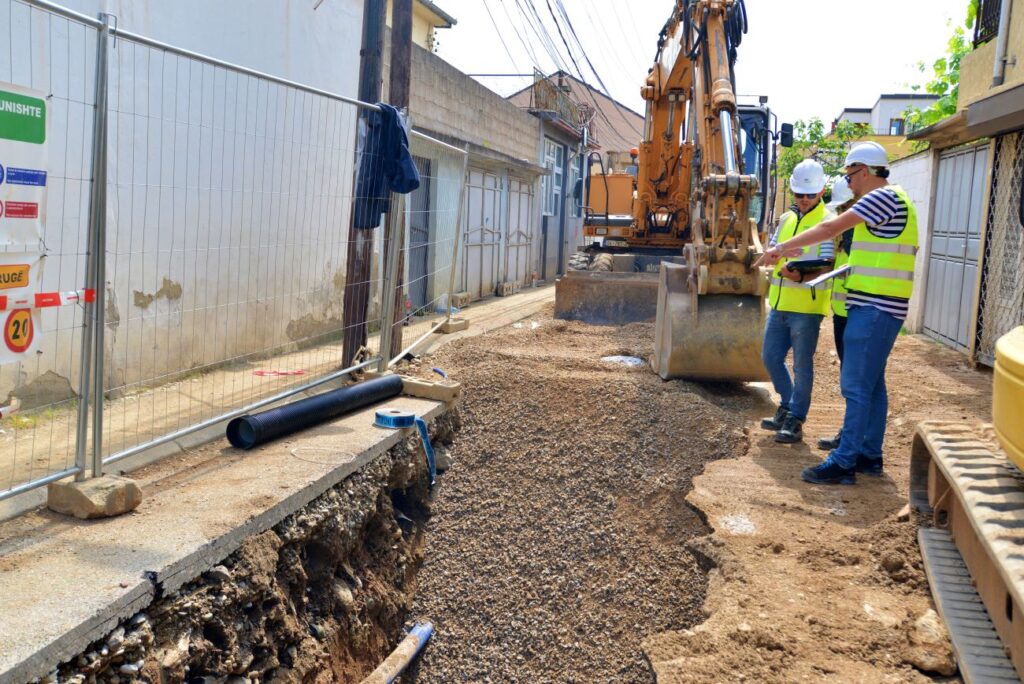Sewage Disposal in Southwest Kosovo, Phase V & VI
The Sewage Disposal South-West Phase V&VI project focuses on the repair, rehabilitation, and replacement of sewer networks in the cities of Peja, Gjakova, and Prizren.
These measures were implemented to connect these cities to the first construction stage of wastewater treatment plants within their respective areas.
The project encompassed several key tasks. Firstly, comprehensive information on the entire sewer and stormwater network, including details such as manholes, levels, diameters, and materials, was compiled and incorporated into the Geographic Information System (GIS). The three Regional Water Companies (RWCs) primarily carried out this task.
Additionally, an analysis of the sewage network in the designated areas of the cities to be connected to the upcoming wastewater treatment plants was conducted. The findings of this analysis were documented in the GIS, primarily undertaken by the three RWCs. Damages and structural issues identified through the analysis were carefully documented.
Based on the analysis results, investment and rehabilitation needs were identified and prioritized. This allowed for a clear understanding of the areas requiring immediate attention. Consequently, priority repairs, rehabilitation, and replacement measures were implemented in the designated areas that would be linked to the wastewater treatment plants.
The project is divided into two distinct phases:
Phase A: Involved preparatory works,
Phase B: Implementation works.
The project was divided into two distinct phases.
Phase A, known as the Preparatory Works phase, involved various tasks to lay the groundwork for the project’s implementation. Detailed design preparation, including the FIDIC Pink Book Tender and Tender Evaluation, was carried out for the flushing and CCTV-inspection of a 60 km sewer network. Additionally, a comprehensive Sewer Inspection Report was prepared, outlining recommendations for rehabilitation. Assistance was provided to the relevant authority, PEA, in the tendering and contracting processes. The supervision of works was conducted over a period of 10 months, ensuring compliance with project specifications. Furthermore, the management and monitoring of environmental and social issues, as well as occupational health and safety measures, were implemented during this phase.
Phase B, known as the Implementation Works phase, focused on the execution of the project. Detailed design, including hydraulic analysis, the FIDIC Pink Book Tender, and Tender Evaluation, were carried out for three Works Contracts, covering a total length of 24 km. The preparation of an Environmental and Social Impact Assessment (ESIA) was also undertaken. Support was provided in obtaining construction permits and licenses, while assistance was extended to PEA during the tendering and contracting stages. The supervision of works continued for 18 months and is currently ongoing. Throughout this phase, the management and monitoring of environmental and social issues, as well as occupational health and safety measures, remained a priority. Furthermore, assistance was provided during the Defects Notification Periods, which spanned 12 months, ensuring any issues or concerns were addressed promptly.















